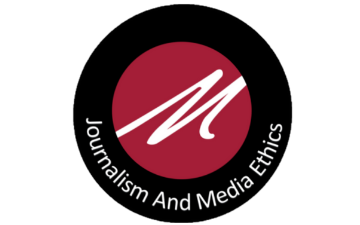
The Ethics Center announces today the formation of the Journalism and Media Ethics Council. The group brings together influential minds in American journalism and media to address pressing issues related to disinformation, misinformation, and the role journalism should play in polarized societies.
The Council consists of journalists, media executives, public relations specialists, media educators, and news supporters, including:
- Ashley Alvarado, director, Community Engagement, Southern California Public Radio
- James Bettinger, director emeritus, John S. Knight Journalism Fellowships at Stanford University
- Leslie Corty Kesselring, founder and president, Kesselring Communications
- Jill Geisler, Bill Plante Chair in Leadership and Media Integrity, Loyola University, Chicago
- Holly Kernan, chief content officer, KQED
- Martha Mendoza, investigative reporter, Associated Press
- Samantha Moore, vice president, Communications and Brand Strategy, LeanData
- Laura Moorhead, assistant professor, Journalism, San Francisco State University
- Craig Newmark, founder, craigslist and Craig Newmark Philanthropies
- Ben Trefny, news director, KALW
“Journalism and media ethics issues are at the forefront of public discourse right now, both nationally and internationally,” said Don Heider, executive director, Markkula Center for Applied Ethics. “All too often, people are trying to figure out answers without opportunities to consult with each other, and we are pleased to offer a venue in which industry leaders can come together to share their experiences and insight into pressing ethical issues.”
The Council is run out of the Ethics Center’s Journalism and Media Ethics program, led by Subramaniam Vincent and Anita Varma. The program's mission includes:
- Providing journalists with the crucial background and framework needed to conduct ethical journalism;
- Helping to give the public a voice in shaping and understanding journalism;
- Using ethical principles to frame the design and delivery of news, social media, and search products.
The program is designed around four principles: inclusion, human dignity, focus on the whole person, and public service. Its projects fall into three categories: ethical resources and training for digital storytellers, reflective design practices for tech product teams, and media literacy for audiences and participants in digital media. Overall, the program works to provide frameworks to help professional storytellers and individual participants in the digital media ecosystem identify, assess, and debate the ethical questions that arise regularly.
Follow the Journalism and Media Ethics Program on Twitter: @jmethics
